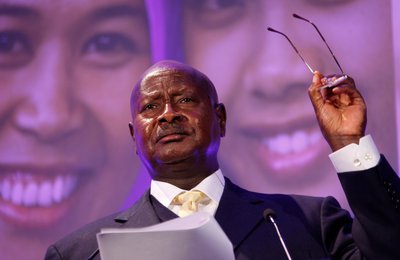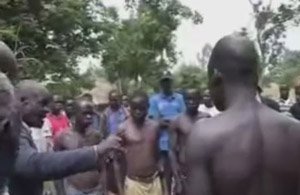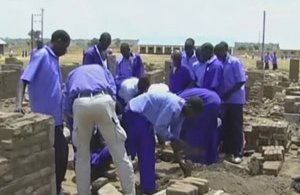Ugandans have turned to the almighty deity to help them organise a peaceful presidential and other elections come early next year. Recently, the Uganda Joint Christian Council (UJCC): one of Uganda’s leading inter-religious peacebuilding organisations, and a strong voice for peace, justice and good governance in Uganda, organised a national prayer for a peaceful election in Kampala in which the religious leaders asked their faithful followers to pray for a peaceful election scheduled for February and March 2011. The Parliament of Uganda too organised a prayer retreat for a peaceful election. Then media associations and business communities followed. Several groups held similar prayers in different parts of the country, all pleading for divine intervention if the elections are to be peaceful. On October 22, 2010: two days before nomination began for presidential candidates, the Electoral Commission- Uganda’s statutory body in charge of organising the elections –either aware of the tasks ahead or convinced that they surely needed spiritual guidance to execute that task, also took a prayer retreat, alongside the Inter-Religious Council of Uganda (IRCU). According to the Daily Monitor, “The Men of God lit 112 candles, representing the number of Ugandan districts and prayed for the election of only God’s chosen leaders.”
That the whole nation is turning to the almighty is not surprising to many Ugandans and people who follow Uganda’s politics. The country’s history is written by traumatic experiences during elections. If there was another peaceful means to determine who governs this country, many Ugandans would understandable opt not to vote. Since 1962 when the country gained independence, elections have been manipulated as an excuse to entrench dictatorship, or launch violent “liberation” struggles. In just 48 years, Uganda has had eight Presidents and regime changes, none democratically. Ugandans are still to witness a peaceful transfer of power after independence. In 1961, a colonial organised pre-independence election was marred by religious and sectarian boycotts and failed to unite the country for independence. In 1962, the election that won independence was characterised by unfaithful political alliances and conspiracies which sowed the seeds for the country’s future turmoil’s, including the 1966 Buganda crisis and the abrogation of the 1967 Uganda Constitution and abolition of kingdoms.
The period 1967-1979 that followed can be described as “Uganda’s darkest era.” The country was ruled by emergency powers and military decrees, leading to the overthrow of President Milton Obote (1967-1971) by General Idi Amin (1971-1979) who suspended all elections, declared himself “president for life” killed and caused the disappearances and deaths of several thousand Ugandans. In 1979 Amin was overthrown by a joint liberation movement supported by the Tanzanian People Defence Forces (TPDF) and a series of transitional governments (Lule, Binaisa and the Military Commission) were formed and mandated to organise a credible election but each fell prey to political intrigue and greed for power.
The 1980 general election organised by the Military Commission under Paul Muwanga and won by the Uganda People’s Congress (UPC) under Milto Obote was far from free and fair. It was marred by disorganisation and partiality of the electoral commissions, intimidation and violence, ballot stuffing and rigging in favour of the UPC. The Democratic Party (DP) led by Paulo K. Semogerere was believed by many Ugandans to have been unfairly denied victory in that election. Although the DP conceded and joined Parliament as the official opposition: at the end there was no clear break from the past, a fact which continues to haunt Ugandans to date. Yoweri Kaguta Museveni, a rising politician and candidate of the Uganda Peoples Movement (UPM) - which came a distance third in the elections - had declared that he will take arms and fight any new government if the elections were rigged. In early 1981, Yoweri Museveni Kaguta, launched a violent guerrilla campaign - to fight election rigging and restore democracy against the government of Obote II (1981-1985) and the Military Junta of Tito Okello (1985-1986) which brought him to power in January 26, 1986. From 1986 to date, however, Museveni’s handling of elections has not changed Ugandans apathy on elections.
While his legacy in Uganda is becoming the subject of growing public debate and academic scholarship; the fact remains that more and more Ugandans feel that Museveni is in fact not interested in a free and fair elections. Many people claim that according to Museveni, elections must be free and fair so long as it does not threaten his hold on power and majority support in Parliament.
In 2000 he personally engineered the amendment of Uganda’s 1995 Constitution to remove presidential term limits and hold on to power for the foreseeable future. As his popularity dwindles, he unleashes violence and deploys all available state machinery to curb opposition and rig elections to hold on to power. In the last 2006 Presidential Elections, the leader of Museveni’s main rival the Forum for Democratic Change (FDC), Dr Kizza Besigye, petitioned the Uganda Supreme Court to challenge the election result that pronounced Museveni as winner and all judges of the Supreme Court agreed that the elections were not free and fair but stopped short of annulling the results on grounds that it did not substantially affect the outcome. Recently however, Justice George Kayiehamba, a former judge of the Supreme Court who heard that case alleged that all the judges were actually convinced that the result should be overturned but feared inter-alia that, given the violence already suffered by Ugandans during that election, more violence against ordinary Ugandans in another election was unacceptable price.
Museveni has reappointed the same chairperson of the electoral commission, Badru Kiggundu, whose previous election was found wanting by the Supreme Court, and accused of complicity in the election rigging. Accordingly, many commentators fear that Museveni has resorted to Obote’s strategy to hold power: they cite the weakening of Parliament, the heavy involvement of the military in politics and the militarization of the police force, as well as the handpicking of the incompetent Electoral commissioners, as what past leaders did and Museveni is now doing to retain power - a recipe for more violence . The bad signs started with allegations of poll rigging and violence that marred the primaries election of party flag bearers all over the country, especially in the ruling NRM party where some Ministers had to be disarmed by their own guards for shooting at the Opposition crowd contesting within the same party. From the looks of things, therefore, Ugandans are right to be worried: a fact not helped by the apparent disorganisation of the electoral commission. All indications are that the commission, despite its early success in large voter registration and display of voters register, will not be ready to conduct a peaceful election, and might not stand to the state manipulation come February 2010. A new report launched by the Open Society Initiative for Eastern Africa and Afrimap suggest that the Electoral Commission is not ready to hold the forthcoming election. The report states that “the failure by the Electoral Commission to address constant harassment, arrest and intimidation of politicians has largely dented its credibility four months to elections.”
As Ugandans draw closer to this nervous moment as a nation, Insight on Conflict will serialise stories of local peacebuilders working to ensure a peaceful free and fair elections in Uganda in March 2011.






